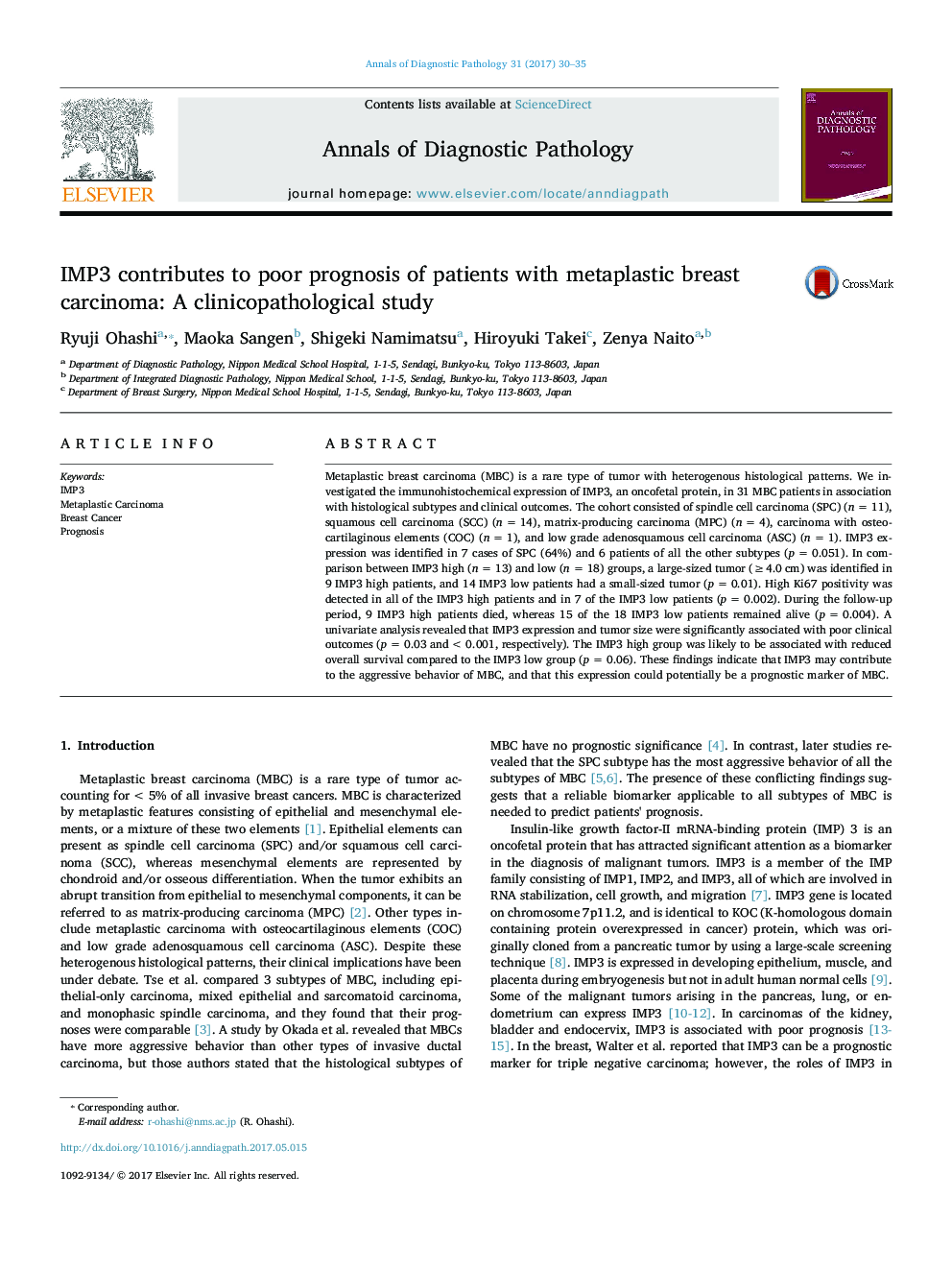| Article ID | Journal | Published Year | Pages | File Type |
|---|---|---|---|---|
| 5715863 | Annals of Diagnostic Pathology | 2017 | 6 Pages |
â¢Metaplastic breast carcinoma (MBC) has heterogenous histological patterns.â¢Expression of IMP3, a oncofetal protein, was assessed in 31 MBC cases.â¢IMP3 expression was associated with adverse clinicopathological parameters.â¢MBC patients with high IMP3 expression had shorter overall survival.
Metaplastic breast carcinoma (MBC) is a rare type of tumor with heterogenous histological patterns. We investigated the immunohistochemical expression of IMP3, an oncofetal protein, in 31 MBC patients in association with histological subtypes and clinical outcomes. The cohort consisted of spindle cell carcinoma (SPC) (n = 11), squamous cell carcinoma (SCC) (n = 14), matrix-producing carcinoma (MPC) (n = 4), carcinoma with osteocartilaginous elements (COC) (n = 1), and low grade adenosquamous cell carcinoma (ASC) (n = 1). IMP3 expression was identified in 7 cases of SPC (64%) and 6 patients of all the other subtypes (p = 0.051). In comparison between IMP3 high (n = 13) and low (n = 18) groups, a large-sized tumor (â¥Â 4.0 cm) was identified in 9 IMP3 high patients, and 14 IMP3 low patients had a small-sized tumor (p = 0.01). High Ki67 positivity was detected in all of the IMP3 high patients and in 7 of the IMP3 low patients (p = 0.002). During the follow-up period, 9 IMP3 high patients died, whereas 15 of the 18 IMP3 low patients remained alive (p = 0.004). A univariate analysis revealed that IMP3 expression and tumor size were significantly associated with poor clinical outcomes (p = 0.03 and < 0.001, respectively). The IMP3 high group was likely to be associated with reduced overall survival compared to the IMP3 low group (p = 0.06). These findings indicate that IMP3 may contribute to the aggressive behavior of MBC, and that this expression could potentially be a prognostic marker of MBC.
